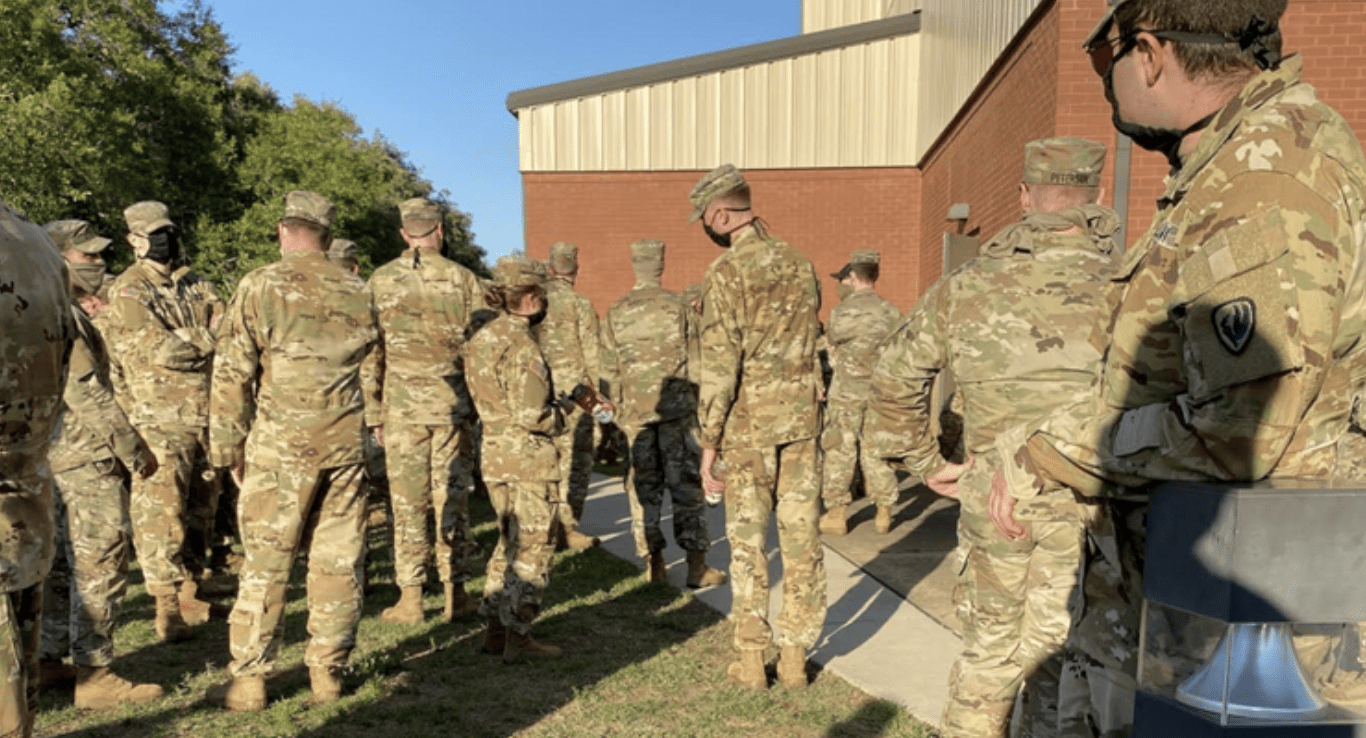Army May Have Hosted Largest Gathering During Pandemic

The Pentagon “failed to adequately respond” to the COVID-19 pandemic, charged ten Democratic lawmakers in a letter sent to the Pentagon Monday. The lawmakers say “lack of clear guidance” from Defense Secretary Mark Esper has put service members at risk because there has not been a clear coronavirus policy across the Defense Department.
The Trump administration decided in April to send the largest U.S. fleet ever to the Southern hemisphere to interdict “corrupt actors” in the Carribean, which led to the destroyer USS Kidd turning back for San Diego after reporting 47 cases of COVID-19. Last week, Fort Rucker had 100 percent of its nearly 2,000 soldiers wait nearly 10 hours for a drug test. As soldiers waited until nearly 2 a.m. for the test, they began to bring out couches and order pizza, in clear violation of social distancing. Post officials justified their decision to conduct a 100 percent urinalysis because they also had a test “back in January” i.e. before COVID-19 hit U.S. shores. As it stands, the Army may have held the largest gathering in America during the pandemic.
There are plenty of examples like these to fuel the accusation that Esper’s response to the pandemic placed political considerations ahead of service members health. The Senators’ letter specifically focuses on other cases.
The Senators write that Esper placed politics above the health of the military forces and their families when he urged overseas commanders to not “make any decisions… that might surprise the White House or run afoul of President Trump’s messaging on the growing health challenge.”
There was no force-wide protocol because Esper delegated decision-making on how to address the pandemic to individual commanders of units, installations and vessels, which led to confusing and contradictory responses. While U.S. Forces in Korea acted quickly to contain the spread of the virus, Navy commanders allowed the carrier Theodore Roosevelt to visit Vietnam, which resulted in more than 840 cases of COVID-19 on the vessel.
“Although local commanders know their units and operating environments better than anyone in the Pentagon, they are not public health experts,” the senators wrote. “They are now left to make decisions they should never have to make.”
Lawmakers also charge that Esper seems profoundly misled about COVID-19; he said as late as April 16 on NBC’s Today show that the spread on the Roosevelt of the novel coronavirus revealed a “new dynamic” showing the virus could be spread by asymptomatic carriers.
But by mid-March how coronavirus was contracted was already “extremely obvious,” the Senators write.
Signatories of the letter, including Sens. Kamala Harris, D-Calif., Patty Murray, D-Wash., Richard Blumenthal, D-Conn., Jeff Merkley and Ron Wyden, D-Ore., Sherrod Brown, D-Ohio, Amy Klobuchar, D-Minn., and Ed Markey, D-Mass., also complain that Esper would not disclose military locations where COVID-19 cases are clustered. The Pentagon argues this information would compromise force security.
The senators’ letter “does not even remotely accurately reflect our record of action against the coronavirus and the great lengths we have gone to to protect our people,” Jonathan Hoffman, assistant secretary of defense for public affairs, wrote in a response to Military.com. The senators “cherry-picked false and repeatedly debunked assertions that do not reflect reality.”
“Secretary Esper has made a clear, unambiguous decision to provide constant guidance to senior civilian and military leaders on how to confront the crisis,” Hoffman wrote.
The Pentagon issued basic force protection guidelines on January 30 and continued to update the guidance nine times. He also pointed out that the Pentagon has deployed 60,000 personnel to respond to COVID-19, including 4,000 health care professionals, two hospital ships, 14 Army medical task forces and two Navy expeditionary medical facility detachments. The Pentagon also provided 20 million N95 masks to the states.
Esper has until May 11 to respond to the lawmakers’ series of questions.
Comments